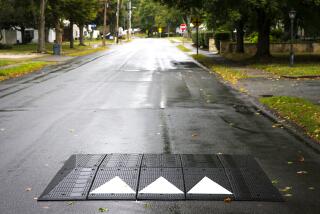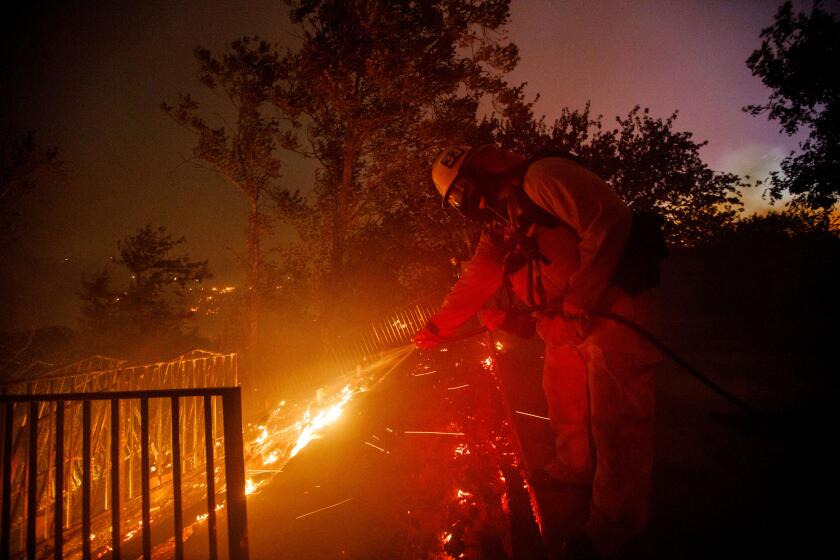Rejecting red-light cameras in L.A.
Red-light cameras don’t get a lot of love in this town from anybody except the Los Angeles Police Department, but it still came as a surprise Tuesday when the civilian board that oversees the LAPD voted to eliminate them. The decision flies in the face of police statistics showing that accidents and fatalities have fallen dramatically at the 32 intersections where cameras have been installed. But was it the right call? To us, the evidence in favor of the cameras isn’t compelling enough to urge the City Council to keep them running.
The best argument in favor of traffic cameras is that they enhance public safety. The LAPD cites a 62% drop in red-light-related collisions at the intersections with cameras, compared with a 22% drop citywide during the same period. Yet local activists have questioned whether the improvements are due to the cameras; at the same time the devices were installed, engineers added “all-red” intervals, during which the lights in all directions are red. It’s possible that the drop in accidents came as a result of these intervals rather than the cameras.
The best argument against the cameras is that they cost the city money while having dubious safety benefits. The contract proposals presented to the Police Commission indicated that the camera program would cost L.A. from $360,000 to $1.6 million a year. That’s because the city’s portion of the ticket revenue the cameras generate doesn’t make up for what it pays out to the private camera contractor, to the police who oversee the program and to the courts. In addition, many drivers don’t pay their fines, and the city has little power to make them. Yet proponents point out that it would be possible to structure the contract as revenue-neutral, meaning the contractor would ensure that the city has no losses.
Our biggest beef with the cameras is that sometimes they’re unjust. Tickets for red-light violations typically run to more than $400, even when the infraction is minor. Drivers in California must come to a full stop at red lights before making a right turn, and many of the tickets issued as a result of the red-light cameras are for rolling turns — the driver either didn’t come to a full stop before turning or the car’s tires went slightly beyond the line marking the beginning of the intersection. Most traffic cops would have the sense not to issue a ticket for such a non-hazardous offense, but a camera doesn’t.
The City Council could still reverse the Police Commission, if two-thirds of its members agree to take jurisdiction over the camera decision. It shouldn’t bother. We doubt many Angelenos will miss the cameras when they’re gone.
More to Read
A cure for the common opinion
Get thought-provoking perspectives with our weekly newsletter.
You may occasionally receive promotional content from the Los Angeles Times.






